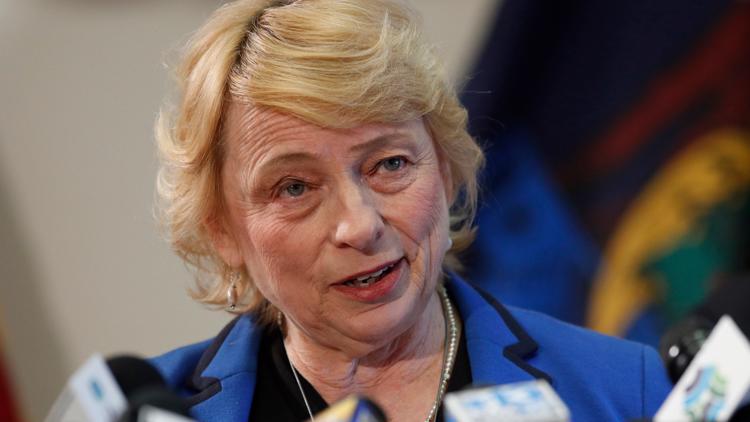AUGUSTA, Maine — For the thirteenth time since the coronavirus pandemic reached Maine last March, Gov. Janet Mills has extended the state of emergency proclamation. The state of emergency, which can only be issued in 30-day increments per Maine law, will stay in effect through April 15.
The Governor's Office said in the announcement Wednesday Mills' decision to extend the proclamation "is in line with nearly every other state in the nation which have ongoing emergency declarations," citing to the National Governors Association.
Vermont extended its state of emergency on Tuesday.
“We are in a race between vaccinations and variants,” Mills said in a statement. “And with more than a quarter of all Maine people now having received their first dose, we are making good progress. But we have got to keep our foot on the gas to get more people vaccinated, to keep people alive and healthy, and to get us back to normal sooner. The summer is fast approaching and the finish line is on the horizon. I urge all Maine people to keep doing the basic things that keep us healthy, like wearing a mask, and to sign up to get the vaccine when they are eligible. Together, we will get through this and get our state and our economy back on track.”
The state of emergency proclamation allows the state to deploy all available tools, including drawing on federal funds, to respond to and contain COVID-19.
Earlier this month, there was a bipartisan effort in the Maine Legislature to end Mills' state of emergency declaration, but it was ultimately voted down.
The bill, presented by Republican Sen. Rick Bennett of Oxford, argued Mills has enacted the emergency declaration “without consulting the Legislature, a coequal branch of State Government, for nearly a year.”
Bennett’s resolution said the emergency orders were originally based on science and were designed to reduce the spread of COVID-19 across the state, “but have been extended for months without providing the Legislature with a sufficient scientific rationale or justification.”
In a statement to NEWS CENTER Maine in response to the bill and the vote, the press secretary for the Governor’s Office, Lindsay Crete, said Mills “is not interested in making the pandemic political.”
“She is focused solely on saving the lives and livelihoods of Maine people,” Crete continued. “Her Administration will continue to balance public health and economic health within the bounds of her Constitutional authority and in a strictly non-partisan and non-political fashion.”
Three Democrats—Sens. Craig Hickman, Chloe Maxmin, and David Miramant—joined Republicans in voting to pass the resolution. The resolution was rejected in a 19-15 vote.
As of Wednesday, 725 people have died in Maine with COVID-19, and there have been 47,591 total COVID-19 cases in the state. The current seven-day PCR positivity rate is 1.55 percent.
During Tuesday's coronavirus briefing, Maine CDC Director Dr. Nirav Shah noted that just within the past 14 days, which is one incubation period of COVID-19, Maine has seen a slight increase in hospitalizations and positivity rate, as are other places in the country and around the world, such as in Europe, where closures are being implemented again.
Shah said Piscataquis County, in particular, is an area of concern that the Maine CDC is monitoring.
"All of this is to say ... we are not out of this yet, as a state, as well as at a county level," Shah said Tuesday. "So, no matter where you are in Maine, this is a good reminder that even though vaccines are with us and we are making progress, the tried and true public health tools that got us this far as a state—masking, social distancing, avoiding crowds, as well as the basic hygiene tips that we've talked about—are still best practices. They haven't gone away even though we're making progress on vaccines."



